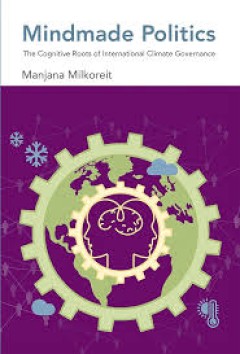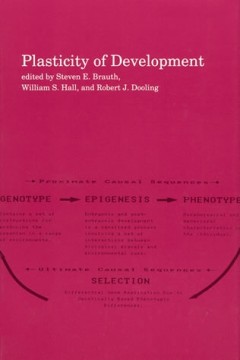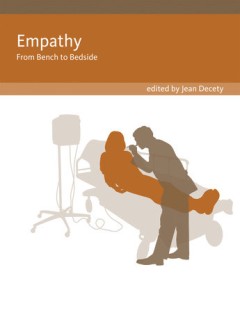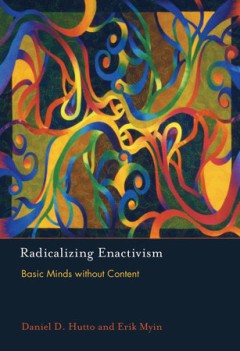Filter by

Mindmade politics the cognitive roots of international climate governance
How integrating cognitive theories and international relations scholarship can yield valuable insights into the effectiveness of climate negotiations. Mindmade Politics takes a novel, interdisciplinary approach to understanding the complex and contentious dynamics of global climate politics. Manjana Milkoreit argues that integrating cognitive theories and international relations scholarship can…
- Edition
- -
- ISBN/ISSN
- 9780262340588
- Collation
- 1 online resource (352 pages)
- Series Title
- -
- Call Number
- -

Philosophical psychopathology
"A Bradford book."Philosophical Psychopathology is a benchmark volume for an emerging field where mental disorders serve as the springboard for philosophical insights. It brings together innovative, current research by Owen Flanagan, Robert Gordon, Robert Van Gulick, and others on mental disorders of consciousness, self-consciousness, emotions, personality, and action and belief as well as gene…
- Edition
- -
- ISBN/ISSN
- 9780262274227
- Collation
- 1 online resource (ix, 332 pages)
- Series Title
- -
- Call Number
- -

Plasticity of development
Revised papers presented at a series of lectures, during the 1986-87 academic year. Organized by the Program for Developmental Research, University of Maryland, College Park."A Bradford book."Errata slip inserted.OCLC-licensed vendor bibliographic record.
- Edition
- -
- ISBN/ISSN
- 9780262269193
- Collation
- 1 online resource (viii, 182 pages) :illustrations
- Series Title
- -
- Call Number
- -

The politics of denial
Anger and resentment appear to be playing an increasingly important role in politics, as evidenced by the vociferous opposition to welfare, abortion, and immigrants, and by the rise of the radical Religious Right. The Politics of Denial presents a compelling explanation of these phenomena, providing solid empirical evidence for the role of rigid, harsh childrearing practices in the creation of …
- Edition
- -
- ISBN/ISSN
- 9780262279789
- Collation
- 1 online resource (x, 292 pages) :illustrations
- Series Title
- -
- Call Number
- -

Empathy: From Bench to Bedside
Recent work on empathy theory, research, and applications, by scholars from disciplines ranging from neuroscience to psychoanalysis.OCLC-licensed vendor bibliographic record.
- Edition
- -
- ISBN/ISSN
- 9780262298612
- Collation
- 1 online resource (ix, 324 pages) :illustrations.
- Series Title
- -
- Call Number
- -

Mind as motion :
Mind as Motion is the first comprehensive presentation of the dynamical approach to cognition. It contains a representative sampling of original, current research on topics such as perception, motor control, speech and language, decision making, and development. Included are chapters by pioneers of the approach, as well as others applying the tools of dynamics to a wide range of new problems. T…
- Edition
- -
- ISBN/ISSN
- 9780262281782
- Collation
- -
- Series Title
- -
- Call Number
- -

Moral psychology
Groundbreaking essays and commentaries on the ways that recent findings in psychology and neuroscience illuminate virtue and character and related issues in philosophy.Philosophers have discussed virtue and character since Socrates, but many traditional views have been challenged by recent findings in psychology and neuroscience. This fifth volume of Moral Psychology grows out of this new wave …
- Edition
- -
- ISBN/ISSN
- 9780262337281
- Collation
- 1 online resource (4 volumes) :illustrations
- Series Title
- -
- Call Number
- -

The Cultural Nature of Attachment: Contextualizing Relationships and Development
Multidisciplinary perspectives on the cultural and evolutionary foundations of children's attachment relationships and on the consequences for education, counseling, and policy.OCLC-licensed vendor bibliographic record.
- Edition
- -
- ISBN/ISSN
- 9780262342872
- Collation
- 1 online resource (xi, 429 pages).
- Series Title
- -
- Call Number
- -

Radicalizing Enactivism: Basic Minds without Content
Hutto and Myin promote the cause of a radically enactive, embodied approach to cognition which holds that some kinds of minds - basic minds - are neither best explained by processes involving the manipulation of contents nor inherently contentful. It opposes the widely endorsed thesis that cognition always and everywhere involves content. The authors defend the counter-thesis that there can be …
- Edition
- -
- ISBN/ISSN
- 0262312174
- Collation
- 1 online resource
- Series Title
- -
- Call Number
- -

The gameful world : approaches, issues, applications
What if every part of our everyday life was turned into a game? The implications of "gamification."OCLC-licensed vendor bibliographic record.
- Edition
- -
- ISBN/ISSN
- 0262325713
- Collation
- 1 online resource (ix, 676 pages) :illustrations
- Series Title
- -
- Call Number
- -
 Computer Science, Information & General Works
Computer Science, Information & General Works  Philosophy & Psychology
Philosophy & Psychology  Religion
Religion  Social Sciences
Social Sciences  Language
Language  Pure Science
Pure Science  Applied Sciences
Applied Sciences  Art & Recreation
Art & Recreation  Literature
Literature  History & Geography
History & Geography